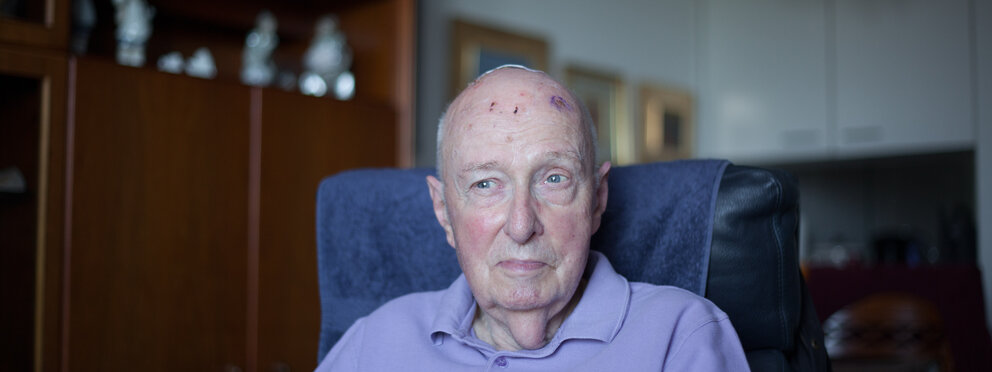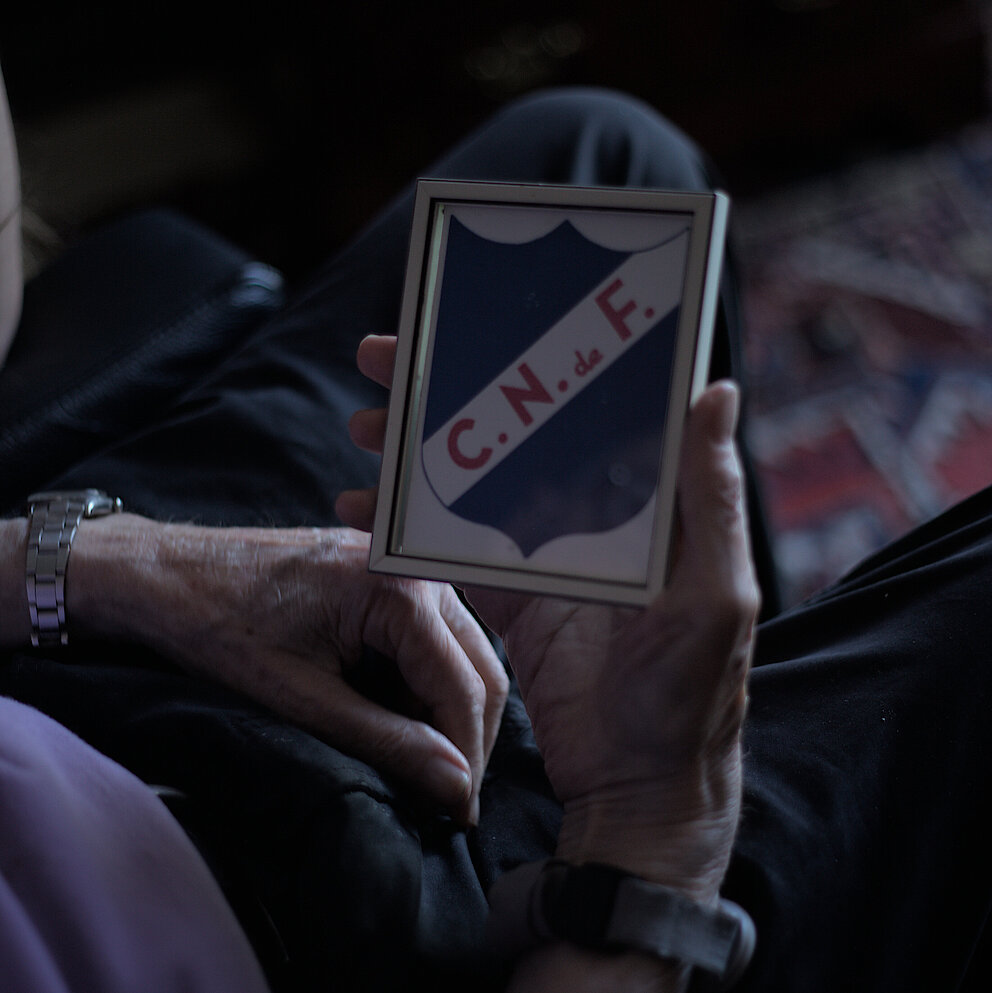
Bert Max Silbermann
About Bert Max Silbermann
Bert Max Silbermann was born in Berlin in 1932. At the young age of just six, he and his parents fled Nazi Germany - their first stopover was the Netherlands, and after a sea crossing lasting several weeks, their final destination was Uruguay. Silbermann finally found his second "home" in the coastal city of Montevideo. Because he played football with other children on the street, he quickly learnt Spanish and was able to complete secondary school. He did an apprenticeship as an airline clerk, even got a job at Lufthansa thanks to his knowledge of German and started a family. In the wake of the military dictatorship and the country's persistently poor economic situation, Silbermann, who always felt German, took the big step in 1981 and returned to a divided Germany after more than 40 years. But even after his return, the anti-Semitism was always palpable.
Bert Max Silbermann spent his last years in a retirement home in Frankfurt am Main, which he liked to call his home. He died in July 2018 and we bid him farewell in our obituary.
"I am the greatest optimist of all pessimists."
A picture to live on
Football has always been important to Bert Max Silbermann. After arriving in Montevideo, Uruguay, in 1938, he started playing football on the street with other children. He learnt Spanish through play and it helped him to settle in Uruguay. Mr Silbermann showed us a crest of the Club Nacional de Football, a football club from Montevideo. Back then, he was a big fan of this club and also collected signatures of the footballers who became world champions in 1950. After he moved to Germany, however, his interest gradually waned, but football is still something that links the two countries that are so important to him - Uruguay and Germany.

Our encounter
Bert Max Silbermann had been living in the Budge Foundation in Frankfurt am Main for around ten years. The Budge Foundation is a retirement home where people of Jewish faith live peacefully together with people of other religions. He lived there in his own flat, which he had furnished in a cosy way. On the walls were many photos of his family - his daughters, his son and his grandchildren - as well as photos of his German family members who did not survive the Nazi regime. His favourite place in the flat was his super comfy armchair with a small side table, a lamp and a telephone. This meant he could read, communicate and watch football all from one place.
During our interview, Mr Silbermann was initially critical, deliberative and distant. But then a floodgate opened and he told us about his childhood in Berlin, the adventure of travelling by ship - through the eyes of a child - but also the worries and fears he felt among the adults during the crossing. He also shared with us his time in a new world, with his parents and their difficulties in feeling at home there, in arriving at all. He showed us old family photos and told us what was done to his family under National Socialism. Many family members did not survive this time.
We met a gentleman who was always very well dressed (jacket, shirt and tie). He was very charming, careful to maintain good manners.
